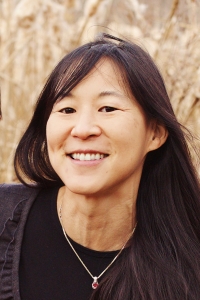Priscilla Yang, 2007
Departed HMS

While at HMS
Who she is
Priscilla Yang is a native of Pine Bluff, Arkansas. She graduated with combined Bachelor and Master of Science degrees in Molecular Biophysics and Biochemistry from Yale University and then went on to earn her doctorate degree in Bio-organic Chemistry with Peter G. Schultz at the University of California-Berkeley. Her research in viral pathogens began during her post-doctoral studies with Frank Chisari at The Scripps Research Institute. Since coming to the Department of Microbiology and Immunobiology at Harvard Medical School, she has built a research group that brings to bear the power of chemical and pharmacological approaches to understanding how viral pathogens replicate and discovering new antiviral targets and strategies.
What she does
Trained as both a chemist and as a virologist, Priscilla has prioritized opportunities in which chemical tools can be used to investigate questions that have not been accessible using more conventional virological approaches. This has included 1) the use of novel screening and profiling platforms to identify host factors with functions in dengue virus replication; 2) the use of medicinal chemistry to develop small molecules as mechanistic probes of dengue virus entry, translation, genome replication, and assembly and tool compounds for pharmacological validation of antiviral targets in vitro and in vivo; 3) the use of chemoproteomic profiling methods to identify virus-induced changes in host protein function (rather than host gene expression and protein abundance); and 4) the use of analytical and biophysical chemistry approaches to study the relationship between specific lipid structure and function in viral processes, using hepatitis B and C viruses as models. These efforts are driven towards new discoveries in basic science and new translational opportunities to impact human health.
News from the Lab
Most recently, Priscilla’s group has made exciting discoveries showing that hepatitis C virus (HCV) and other viruses not only utilize host lipids for replication, they have exquisite selectivity at the molecular level and have evolved specific mechanisms to affect steady-state lipid metabolism to promote viral replication.


